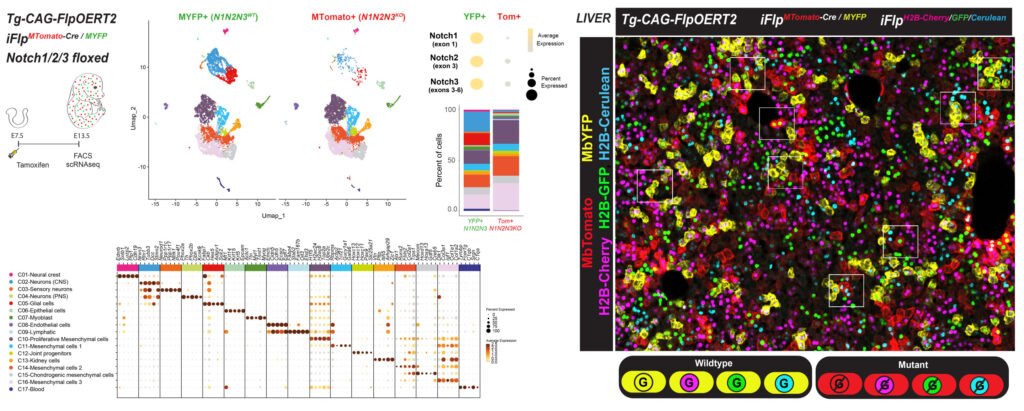A groundbreaking study conducted by a team at the Centro Nacional de Investigaciones Cardiovasculares (CNIC) has introduced a revolutionary set of genetic tools and mouse lines known as iFlpMosaics. These innovative tools have been developed to significantly enhance the study of gene function and its implications in both health and disease.
Led by Dr. Rui Benedito and recently published in the prestigious journal Nature Methods, this pioneering approach addresses critical limitations of existing methods for generating genetic mosaics. The iFlpMosaics toolkit enables scientists to investigate the effects of somatic mutations on cellular biology and disease with higher accuracy and throughput.
One of the key features of the iFlpMosaics toolkit is its versatility across various experimental setups. Researchers can now track the effects of single or multiple gene deletions within the same tissue, providing a deeper understanding of gene function in cell biology, regeneration, and disease.
Traditional genetic studies in biomedical research often compare cells from different mutant and control animals, leading to discrepancies in results due to varying epigenetic landscapes and tissue microenvironments. Dr. Benedito highlights the importance of generating genetic mosaics from identical progenitor cells within the same animal to fully comprehend gene function.
Unlike current technologies like MADM or Cre-dependent mosaics, which suffer from technical issues, the iFlpMosaics toolkit offers a robust platform for inducing genetic mosaics with precision and reliability. This toolkit not only enhances the understanding of genetic mutations in tissue development and disease processes but also facilitates the study of complex cell interactions within their microenvironment.
Dr. Irene García González, the first author of the study, emphasizes the significance of iFlpMosaics in diseases caused by somatic mutations, such as cancer and vascular malformations. The toolkit’s precision and versatility provide a valuable resource for researchers investigating gene function in normal organ development and disease settings.
In conclusion, the iFlpMosaics toolkit represents a significant advancement in genetic research, offering a comprehensive solution for studying gene function in a more accurate and efficient manner. This innovative approach has the potential to revolutionize the field of biomedical research and pave the way for new discoveries in understanding gene function and its implications in health and disease.


